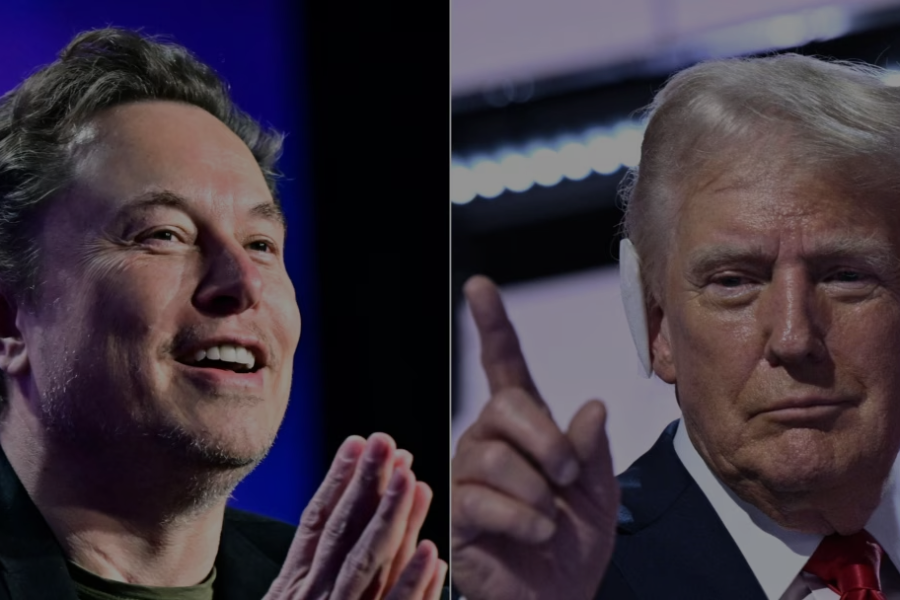Former President of the United States of America Donald Trump and Tesla and SpaceX’s boss Elon Musk had an explosive spat on X on Monday, but technical hitches disrupted the interview, which was the most looked forward to.
The delay comes as Trump’s campaign appears increasingly unable to find its footing as Vice President Kamala Harris gains favor with the Democrats. The interview also means Musk’s second attempt at hosting a major political figure on X, after a similar technical snafu during Florida Governor Ron DeSantis’s campaign launch last year.
OC The exchange in which – in its raw form and aggressiveness – Trump returned to X after almost a year was represented as An eye-catching event. Trump was active on the platform last in August of the previous year when he shared his mugshot photo of him, which was clicked at an Atlanta jail following charges over the Georgia election case. In the meantime, despite the fact Trump has been active on Twitter again only since January, he has gamed about 900,000 new followers.
During his ‘interview’ with Trump, Musk avoided asking the latter questions that might pressure him to elaborate on issues such as immigration and the economy in ways that diverge from Trump’s campaign slogans. The interview was conducted like many of Trump’s campaign speeches, culminating in Trump reiterating his campaign slogans without much questioning from Musk, who, it has to be noted, supports Trump.
The two men shook hands, and Musk claimed that Trump supported the ‘right’ values for the continuation of civilization. Trump thanked Musk for the endorsement, pointing out that he was honored to receive it.
He also advised Trump to launch a new presidential commission dedicated to “government efficiency” and proposed himself as a possible appointee; he loved it.
The new narrative started when Trump described how he was shot ‘assassination attempt’ around the country at a rally in Butler, Pennsylvania, in July. He commended local police and Secret Service for their adroit response.
The conversation covered numerous areas of interest, the first of which was energy policy and the second, climate change. That was followed by immigration, where Trump clearly stated that he would ensure the “largest deportation in the history of this country. ” Finally, it went to federal government spending, where Musk suggested the best course of action would be to get a commission to spell out where federal money could be saved.
Trump employed it to tweet falsehoods, statements that were not backed by proper evidence about a coup attempt by the Democrats to unseat Biden and file a complaint against the latter for dementia. He also made some very unpalatable comments about Jewish voters and their voting decisions.
Lingering speech problems were apparent during the interview, and there were moments when Trump appeared to slur his words, which roused comments on the Internet. When asked about the remarks, Trump’s campaign spokesperson, Steven Cheung, invited the public to ignore them, saying they might be because of hearing difficulties.
Musk blamed miscommunication and a possible Distributed Denial of Service (DDOS) attack for the technical problems; whether the site was the target of an attack or that technical problems arose from increased site traffic remained uncertain. He stated that Twitter was actively addressing the issue and contemplated going live with a limited audience if needed.
Trump’s and Musk’s interview roughly began like DeSantis’ campaign launch, where technical difficulties can be remembered. Trump himself had minimally admonished DeSantis’ failed event previously, and in the same regard, the Harris camp was quite quick to point out the delays.
As Trump and Musk yawped their way to the end of their conversation, one problem encapsulated the technical and political difficulties that arise with media events in the age of digital media: namely, the future of public discourse and political endorsements beyond the campaign trail.















